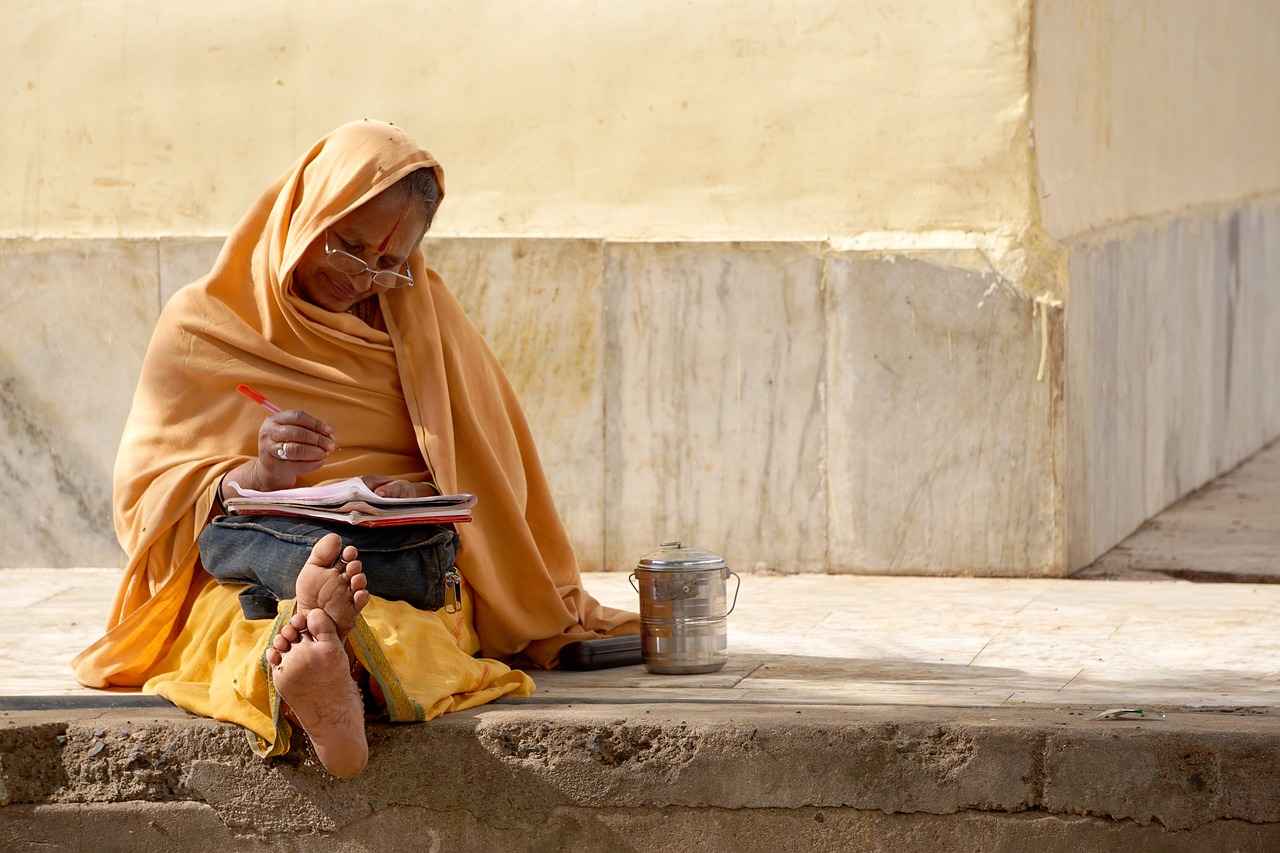This article delves into the intricate relationship between New York’s political environment and its impact on Indian American entrepreneurs. The unique challenges and opportunities presented by this dynamic landscape significantly shape the experiences of these business owners, influencing their growth and sustainability.
Understanding the historical backdrop of Indian American entrepreneurship in New York provides essential insights into the current challenges and successes faced by this community. Indian Americans have been a vital part of New York’s economic fabric since the late 20th century, contributing to various sectors such as technology, healthcare, and hospitality. Their journey has been marked by resilience and innovation, often overcoming barriers related to immigration and cultural integration.
Local government policies play a crucial role in shaping the landscape for small businesses, particularly in areas like taxation, zoning, and regulations. For Indian American entrepreneurs, understanding these policies is essential for navigating the complexities of business operations in New York. Favorable policies can foster growth, while restrictive regulations may pose significant challenges. Entrepreneurs must stay informed about local initiatives and advocate for policies that support their interests.
Immigration policies have a profound impact on Indian American business owners, directly affecting their ability to establish and expand their enterprises. Changes in immigration laws can create uncertainty, influencing the workforce availability and the overall entrepreneurial climate. Advocacy for fair immigration practices is crucial for sustaining the growth of Indian American businesses in New York.
Economic trends, including inflation, consumer spending, and market fluctuations, significantly affect the viability of small businesses owned by Indian Americans. Entrepreneurs must adapt to these trends to remain competitive. Understanding consumer behavior and economic indicators can help business owners make informed decisions, ensuring their enterprises thrive even in challenging economic conditions.
Community support networks are vital for Indian American entrepreneurs, providing resources, mentorship, and opportunities for collaboration. Organizations such as the Indo-American Chamber of Commerce offer essential support, helping business owners connect with peers and access valuable resources. These networks foster a sense of belonging and empowerment, enabling entrepreneurs to navigate the complexities of the business landscape more effectively.
Cultural identity plays a significant role in shaping the business practices of Indian American entrepreneurs. This identity influences their marketing strategies, customer engagement, and overall business philosophy. Embracing cultural heritage can serve as a unique selling proposition, helping businesses stand out in a competitive market while fostering community connections.
Indian American small business owners encounter a variety of challenges, including access to capital, market competition, and navigating bureaucratic hurdles. Securing funding remains a significant obstacle, as traditional lenders may be hesitant to invest in minority-owned businesses. Additionally, competition from established brands can make it difficult for new entrants to gain market share.
Despite the challenges, numerous opportunities for growth exist within New York’s dynamic economy. Emerging sectors such as technology, green energy, and e-commerce present avenues for Indian American entrepreneurs to explore. By leveraging their unique skills and insights, these business owners can tap into new markets and drive innovation.
Technology is reshaping the operational landscape for Indian American small business owners. With the rise of digital marketing, e-commerce, and data analytics, entrepreneurs can enhance their efficiency and customer engagement. Embracing technology not only streamlines operations but also opens up new avenues for reaching customers and expanding market presence.
Networking and collaboration are essential for Indian American entrepreneurs, facilitating partnerships that can lead to innovation and increased market reach. Engaging with other business owners and industry leaders can provide valuable insights and opportunities for collaboration. Building a robust professional network is crucial for navigating the competitive landscape of New York’s business environment.
Highlighting success stories of Indian American entrepreneurs in New York serves as inspiration and showcases the potential for overcoming obstacles in the business landscape. These stories illustrate the resilience and creativity of the community, offering valuable lessons for aspiring entrepreneurs. Celebrating these achievements fosters a sense of pride and motivates others to pursue their entrepreneurial dreams.
The future outlook for Indian American small businesses in New York is shaped by various political, economic, and social factors. While challenges persist, exciting prospects lie ahead. By staying informed and engaged with the political landscape, entrepreneurs can advocate for policies that support their growth and success.
Understanding and navigating New York’s political landscape is crucial for Indian American entrepreneurs seeking to advocate for their interests and ensure business sustainability. Engaging with local representatives, participating in community forums, and joining advocacy groups can empower business owners to influence policies that affect their enterprises positively.

The Historical Context of Indian American Entrepreneurs in New York
Understanding the historical backdrop of Indian American entrepreneurship in New York is essential to grasp the current challenges and successes faced by this vibrant community. The journey of Indian Americans in the business landscape of New York began in the late 20th century, when waves of immigration brought skilled professionals and entrepreneurs to the city. This influx marked the beginning of a significant transformation in the economic fabric of New York.
Initially, many Indian immigrants sought opportunities in traditional fields such as medicine, engineering, and technology. However, as they established themselves, a growing number began to explore entrepreneurship. By the 1990s, Indian American entrepreneurs were making their mark in diverse sectors, from restaurants and grocery stores to technology startups and financial services.
How did historical events shape Indian American entrepreneurship?
- The Immigration and Nationality Act of 1965 played a pivotal role by removing restrictive quotas and allowing a new wave of skilled immigrants to enter the U.S., many of whom settled in New York.
- In the 1980s and 1990s, the technology boom further propelled Indian Americans into entrepreneurship, as many leveraged their expertise in IT and software development.
- The establishment of community organizations and networks during this time provided crucial support, fostering collaboration and resource sharing among Indian American business owners.
Despite these advancements, challenges persisted. Indian American entrepreneurs often faced discrimination and cultural barriers, which complicated their ability to secure funding and navigate the regulatory landscape. Access to capital remained a significant hurdle, as many banks were hesitant to lend to minority-owned businesses without established credit histories.
What contemporary challenges do Indian American entrepreneurs face?
- Access to finance: Many Indian American entrepreneurs still struggle to obtain loans, often relying on personal savings or informal networks.
- Market competition: The competitive landscape in New York can be overwhelming, with numerous businesses vying for the same clientele.
- Regulatory hurdles: Navigating local regulations and compliance requirements can be complex, especially for new entrepreneurs unfamiliar with the system.
Today, Indian American entrepreneurs in New York are not only contributing to the economy but also reshaping the cultural landscape of the city. They have established a unique identity that blends traditional Indian values with modern business practices, creating a diverse marketplace that reflects the multicultural essence of New York.
As we look to the future, the resilience and adaptability of Indian American entrepreneurs will be vital in overcoming ongoing challenges. By leveraging their rich historical context and community support networks, they can continue to thrive and innovate in an ever-evolving economic environment.

The Role of Local Government Policies
Local government policies play a crucial role in shaping the landscape for small businesses, particularly for Indian American entrepreneurs in New York. These policies encompass a wide range of areas, including taxation, zoning, and regulations, each of which has a direct and significant impact on the ability of these entrepreneurs to establish and grow their businesses.
One of the most significant aspects of local government policy is taxation. Tax rates and incentives can either encourage or deter business development. For instance, high local taxes can strain the financial resources of small businesses, making it difficult for them to invest in growth or even sustain operations. Conversely, tax incentives targeted at small businesses can provide the necessary financial relief to foster innovation and expansion within the community.
Zoning laws also play a pivotal role in determining where businesses can operate. These regulations dictate the types of businesses that can be established in certain areas, which can either facilitate or hinder the growth of Indian American enterprises. For example, restrictive zoning laws may limit the ability of entrepreneurs to open restaurants or retail stores in prime locations, effectively stifling their potential customer base. On the other hand, favorable zoning policies can create business-friendly environments that attract diverse entrepreneurs and consumers.
Regulations, including health and safety codes, labor laws, and licensing requirements, further complicate the landscape for small businesses. While these regulations are often necessary to ensure public safety and fair labor practices, they can also impose significant burdens on small business owners who may lack the resources to navigate complex compliance requirements. This is particularly challenging for Indian American entrepreneurs who may already face barriers related to language and cultural differences.
Moreover, local government policies can have a profound impact on the availability of resources for small businesses. Programs designed to support local entrepreneurs, such as grants, training programs, and networking events, can provide invaluable assistance. However, if these programs are not well-publicized or accessible, many Indian American entrepreneurs may remain unaware of the support available to them.
In addition to these challenges, local government decisions regarding infrastructure development, such as public transportation and community facilities, can significantly impact small business operations. Improved infrastructure can enhance access to customers and resources, while inadequate infrastructure can create barriers that hinder business growth.
In conclusion, local government policies are a vital component of the business ecosystem for Indian American entrepreneurs in New York. By understanding the implications of taxation, zoning, and regulations, these entrepreneurs can better navigate the challenges they face and leverage opportunities for growth. It is crucial for local governments to consider the needs of small businesses when crafting policies to ensure a thriving entrepreneurial environment that benefits the entire community.

The Influence of Immigration Policies
Immigration policies play a pivotal role in shaping the business environment for Indian American entrepreneurs in New York. These policies not only dictate the legal framework for immigration but also influence the economic landscape in which these business owners operate. Understanding the intricacies of these regulations is crucial for entrepreneurs aiming to establish and grow their businesses in this vibrant city.
How Immigration Policies Affect Business Operations
The complexity of immigration laws can create significant hurdles for Indian American business owners. Many entrepreneurs rely on skilled immigrant labor to sustain and expand their operations. Policies that limit the availability of work visas, such as the H-1B visa, can hinder businesses from hiring the talent they need. This restriction not only affects the workforce but also impacts innovation and competitiveness within the industry.
Challenges in Navigating Bureaucratic Processes
Indian American entrepreneurs often face bureaucratic challenges when dealing with immigration processes. The application procedures can be lengthy and complicated, leading to delays that affect business planning and growth. Moreover, the uncertainty surrounding immigration policies can deter potential investors and partners, further complicating the business landscape.
Opportunities for Advocacy and Change
Despite these challenges, there are opportunities for Indian American entrepreneurs to engage in advocacy for more favorable immigration policies. By joining forces with local business organizations and community groups, they can lobby for reforms that support their needs. This collective action can lead to a more favorable regulatory environment that encourages entrepreneurship and economic growth.
The Economic Contributions of Indian American Entrepreneurs
Indian American business owners significantly contribute to New York’s economy. They create jobs, foster innovation, and enhance the cultural fabric of the city. By understanding and navigating immigration policies effectively, these entrepreneurs can maximize their impact and ensure their businesses thrive. Supporting policies that promote diversity and inclusion can help sustain this economic vitality.
Future Implications of Immigration Policies
The future of Indian American entrepreneurs in New York will largely depend on the evolving landscape of immigration policies. As political climates shift, so too will the opportunities and challenges faced by these business owners. Staying informed and engaged in policy discussions will be essential for adapting to these changes and continuing to drive economic success.
In conclusion, immigration policies are a critical factor that influences the operations and growth potential of Indian American entrepreneurs in New York. By understanding these policies and advocating for positive changes, business owners can better navigate the complexities of the legal landscape, ensuring their contributions to the economy are recognized and valued.

The Impact of Economic Trends on Small Businesses
Economic trends, particularly inflation and consumer spending, are pivotal in shaping the landscape for small businesses, including those owned by Indian Americans in New York. Understanding these trends is essential for entrepreneurs aiming to navigate the complexities of the market successfully.
Inflation, defined as the rate at which the general level of prices for goods and services rises, directly affects the purchasing power of consumers. For Indian American small business owners, this can mean adjusting pricing strategies to maintain profitability while ensuring that their offerings remain attractive to customers. When inflation rates rise, consumers often become more cautious with their spending, prioritizing essential goods and services over luxury items. This shift in consumer behavior necessitates that business owners adapt their product lines and marketing strategies accordingly.
For instance, many Indian American restaurants may need to reconsider their menu pricing or offer promotional discounts to attract customers during times of high inflation. Similarly, retail businesses may focus on providing value through sales or loyalty programs to encourage repeat business. The ability to pivot quickly in response to economic changes can be the difference between thriving and merely surviving in a competitive market.
Another critical aspect to consider is consumer spending trends. In times of economic uncertainty, consumers tend to spend less, which can significantly impact small businesses. Indian American entrepreneurs must stay attuned to these trends by leveraging data analytics to understand customer preferences and spending habits. By analyzing purchasing data, businesses can identify which products or services are in demand and adjust their offerings accordingly.
Moreover, community engagement plays a vital role in maintaining consumer loyalty. Indian American small business owners often rely on their cultural ties to build strong relationships within their communities. By fostering a sense of belonging and connection, these businesses can encourage local patronage, even during challenging economic times. For example, hosting community events or participating in local festivals can enhance visibility and strengthen ties with customers.
The impact of economic trends extends beyond immediate sales; it also influences long-term business strategies. Small business owners must consider how macroeconomic factors, such as interest rates and employment levels, affect their operational costs and growth potential. For instance, rising interest rates can increase borrowing costs, making it more challenging for entrepreneurs to secure funding for expansion or new projects. Consequently, Indian American business owners may need to explore alternative financing options, such as crowdfunding or community investment initiatives, to support their growth ambitions.
In summary, economic trends like inflation and consumer spending significantly impact small businesses owned by Indian Americans in New York. By understanding these dynamics, entrepreneurs can better position themselves to adapt and thrive in an ever-changing market. It is crucial for business owners to remain flexible, engage with their communities, and utilize data-driven insights to navigate the complexities of the economic landscape effectively.

The Importance of Community Support Networks
Community support networks play a crucial role in fostering the success of Indian American entrepreneurs in New York. These networks provide essential resources, mentorship, and collaboration opportunities that significantly enhance the viability of businesses within this vibrant community. As the landscape for small businesses becomes increasingly competitive, the importance of these support systems cannot be overstated.
One of the primary benefits of community support networks is access to mentorship. Experienced entrepreneurs and business leaders often volunteer their time to guide newcomers, sharing valuable insights on navigating the complexities of starting and running a business. This mentorship can cover various aspects, including business planning, financial management, and marketing strategies. The exchange of knowledge and experience helps to build a foundation of success for emerging entrepreneurs.
Additionally, these networks often provide resources that are vital for business development. This can include access to funding opportunities, workshops, and training programs that equip entrepreneurs with the skills needed to thrive. For instance, many community organizations offer grant writing workshops and seminars on financial literacy, helping business owners to secure the funding necessary for growth and sustainability.
Networking opportunities are another significant advantage of community support networks. By connecting with other entrepreneurs, Indian American business owners can form partnerships that lead to collaborative projects and shared resources. These collaborations can create a ripple effect, benefiting not only the individual businesses involved but also the community as a whole. For example, joint marketing efforts or shared spaces can reduce costs and increase visibility in the marketplace.
Moreover, community support networks foster a sense of belonging and shared identity among Indian American entrepreneurs. This cultural connection can be a powerful motivator, as business owners often draw inspiration from their shared heritage and experiences. Events such as cultural festivals, business expos, and networking meetups provide platforms for entrepreneurs to celebrate their culture while promoting their businesses.
In addition to these practical benefits, community support networks also play a role in advocating for the interests of Indian American entrepreneurs at the local and state levels. By coming together, business owners can voice their concerns regarding policies and regulations that affect their operations. This collective advocacy can lead to positive changes in the political landscape, ensuring that the unique needs of the community are addressed.
Finally, the emotional support provided by these networks should not be overlooked. Entrepreneurship can be a lonely journey, filled with challenges and setbacks. Having a community of like-minded individuals who understand these struggles can provide the encouragement and motivation needed to persevere. This support system can help mitigate feelings of isolation and foster resilience among entrepreneurs.
In conclusion, community support networks are indispensable for Indian American entrepreneurs in New York. They provide a multifaceted array of resources, mentorship, and collaboration opportunities that enhance business viability. By leveraging these networks, entrepreneurs can navigate the complexities of the business landscape more effectively, ultimately contributing to a thriving and diverse economic environment.

The Role of Cultural Identity in Business Practices
Cultural identity plays a pivotal role in shaping the business practices of Indian American entrepreneurs. This influence extends to various aspects of their operations, including marketing strategies, customer engagement, and the overall business philosophy. Understanding how cultural identity impacts these elements can provide valuable insights for both entrepreneurs and stakeholders in the business community.
Indian American entrepreneurs often draw upon their rich cultural heritage when developing their branding and marketing strategies. This unique perspective allows them to connect with a diverse customer base while also appealing to individuals who share similar cultural backgrounds. For instance, many Indian American businesses incorporate traditional elements, such as colors, symbols, and narratives, into their marketing materials. This not only enhances brand recognition but also fosters a sense of community among customers who resonate with these cultural references.
Moreover, cultural identity influences customer engagement practices. Indian American entrepreneurs often prioritize building relationships with their customers, reflecting the communal values inherent in their culture. This approach can manifest in various ways, such as personalized service, community events, and culturally relevant promotions. By fostering a welcoming atmosphere, these entrepreneurs can enhance customer loyalty and create a positive brand image.
In addition to marketing and customer engagement, cultural identity also shapes the overall business philosophy of Indian American entrepreneurs. Many of them emphasize values such as integrity, respect, and hard work, which are deeply rooted in their cultural upbringing. This ethical framework often guides their decision-making processes and influences how they interact with employees, customers, and suppliers. For example, Indian American business owners may prioritize fair labor practices and sustainable sourcing, reflecting their commitment to social responsibility.
Furthermore, the influence of cultural identity extends to the way Indian American entrepreneurs navigate challenges within the business landscape. They often leverage their cultural networks to seek support, share resources, and collaborate on initiatives that benefit the community. This sense of solidarity not only strengthens their businesses but also contributes to the overall economic vitality of the Indian American community in New York.
In conclusion, the role of cultural identity in business practices among Indian American entrepreneurs is multifaceted. It shapes their marketing strategies, customer engagement methods, and fundamental business philosophies. By embracing their cultural heritage, these entrepreneurs can create meaningful connections with their customers and foster a sense of community, ultimately contributing to their success in a competitive marketplace.

Challenges Faced by Indian American Small Business Owners
Indian American small business owners in New York face a myriad of challenges that can hinder their entrepreneurial journey. These challenges are not only rooted in the competitive nature of the market but also stem from systemic issues that affect their ability to thrive. Understanding these obstacles is crucial for fostering a supportive environment for this vibrant community.
- Access to Capital: One of the most significant hurdles for Indian American entrepreneurs is securing funding. Traditional lending institutions often have stringent requirements, making it difficult for small business owners to obtain loans. Many entrepreneurs lack the necessary credit history or collateral, which can lead to a reliance on personal savings or informal lending sources.
- Market Competition: The competitive landscape in New York is intense. Indian American business owners often compete with established local businesses that have a loyal customer base. This competition can be particularly challenging in sectors such as food and retail, where differentiation is key to attracting customers.
- Navigating Bureaucratic Hurdles: The bureaucratic landscape in New York can be complex and overwhelming. Small business owners must navigate various regulations, permits, and licenses, which can be time-consuming and costly. This bureaucratic maze can deter potential entrepreneurs from starting new ventures or expanding existing ones.
- Cultural Barriers: Cultural differences can also pose challenges. Indian American entrepreneurs may face difficulties in understanding local market dynamics, customer preferences, and business practices. This lack of familiarity can impact their marketing strategies and overall business operations.
- Limited Networking Opportunities: Networking is vital for business growth, but Indian American entrepreneurs may find it challenging to connect with influential business networks. This lack of access can limit their ability to form partnerships, seek mentorship, and gain visibility in the broader business community.
In addition to these challenges, Indian American small business owners often face the pressure of balancing cultural expectations with the demands of running a business. Many entrepreneurs feel the weight of their community’s expectations, which can lead to stress and burnout.
Despite these challenges, Indian American entrepreneurs continue to demonstrate resilience and innovation. By leveraging community support networks, seeking mentorship, and embracing technology, they can navigate these obstacles and carve out a successful niche in New York’s dynamic economy. Addressing these challenges through targeted policies and community initiatives can further empower this entrepreneurial community, fostering a brighter future for Indian American small business owners.

Opportunities for Growth in New York’s Economy
New York City is a bustling hub of innovation and entrepreneurship, providing a fertile ground for Indian American entrepreneurs to explore and expand their business ventures. The city’s dynamic economy, characterized by its diverse sectors, presents a myriad of opportunities for growth that can be harnessed by this vibrant community.
One of the most promising sectors for Indian American entrepreneurs is the technology industry. With the rise of tech startups and the increasing demand for digital solutions, entrepreneurs have the chance to leverage their unique skill sets and cultural insights to create innovative products and services. The tech ecosystem in New York is supported by numerous incubators and accelerators, offering resources and mentorship to help entrepreneurs navigate the complexities of launching a tech business.
Moreover, the healthcare sector is experiencing significant growth, especially in areas such as telemedicine and health tech. Indian American entrepreneurs, often with backgrounds in medicine and engineering, can capitalize on this trend by developing solutions that address the healthcare needs of diverse populations. The ongoing advancements in healthcare technology create a platform for these entrepreneurs to innovate and provide essential services to the community.
Another emerging opportunity lies in the sustainable and green business sector. As New York City intensifies its focus on sustainability and environmental responsibility, entrepreneurs who can provide eco-friendly products and services are well-positioned to thrive. This includes everything from sustainable fashion to renewable energy solutions, allowing Indian American entrepreneurs to contribute positively to both the economy and the environment.
Furthermore, the food and beverage industry continues to flourish, with a growing demand for diverse culinary experiences. Indian American entrepreneurs can tap into this opportunity by introducing authentic Indian cuisine or innovative fusion concepts that cater to the city’s diverse palate. Food festivals, pop-up restaurants, and food trucks are just a few avenues through which these entrepreneurs can showcase their culinary talents and connect with a broader audience.
Networking plays a crucial role in harnessing these opportunities. By connecting with other entrepreneurs, industry leaders, and potential investors, Indian American business owners can gain valuable insights and resources. Networking events, workshops, and community gatherings provide platforms for collaboration and knowledge sharing, fostering an environment where businesses can thrive.
In addition, government initiatives aimed at supporting small businesses can significantly impact the success of Indian American entrepreneurs. Programs that offer grants, loans, and training can help mitigate some of the challenges faced by new business owners, enabling them to focus on growth and innovation.
In conclusion, while challenges exist, the opportunities for Indian American entrepreneurs in New York’s economy are abundant. By leveraging their unique skills, embracing emerging sectors, and actively participating in community support networks, these entrepreneurs can navigate the complexities of the business landscape and achieve lasting success.

The Impact of Technology on Small Businesses
Technology has become a pivotal force in transforming the landscape of small businesses, particularly for Indian American entrepreneurs. It is reshaping operational methodologies, enhancing marketing strategies, and improving customer engagement, ultimately driving growth and sustainability.
- Efficiency through Automation: One of the most significant impacts of technology is the automation of routine tasks. Tools such as accounting software, inventory management systems, and customer relationship management (CRM) platforms enable small business owners to streamline their operations. This not only saves time but also reduces the likelihood of human error, allowing entrepreneurs to focus on strategic growth.
- Digital Marketing Strategies: In today’s digital age, traditional marketing methods are being eclipsed by digital marketing. Indian American small business owners can leverage social media platforms, email marketing, and search engine optimization (SEO) to reach a broader audience. By utilizing targeted advertising, they can connect with potential customers more effectively, ensuring that marketing budgets are spent wisely.
- Enhanced Customer Engagement: Technology facilitates real-time communication with customers. Through social media, chatbots, and personalized email campaigns, businesses can engage with their customers directly. This level of interaction not only fosters loyalty but also provides valuable feedback that can help refine products and services. Indian American entrepreneurs are increasingly using these tools to build strong relationships with their clientele.
- Access to E-commerce Platforms: The rise of e-commerce has opened new avenues for small businesses. Platforms like Shopify, Etsy, and Amazon allow Indian American entrepreneurs to sell their products online, reaching customers beyond geographical boundaries. This expansion into the digital marketplace is crucial for growth, especially in a competitive environment.
- Data Analytics for Informed Decisions: Technology provides access to data analytics tools that help business owners make informed decisions. By analyzing customer behavior and market trends, Indian American entrepreneurs can tailor their offerings and strategies to meet consumer demands effectively. This data-driven approach is essential for staying competitive.
- Remote Work Capabilities: The advent of technology has also made remote work a viable option for many small businesses. Tools like Zoom, Slack, and Trello enable teams to collaborate efficiently, regardless of location. For Indian American entrepreneurs, this flexibility can lead to improved work-life balance and access to a wider talent pool.
In conclusion, the impact of technology on small businesses, particularly for Indian American entrepreneurs, is profound and multifaceted. By embracing technological advancements, these entrepreneurs can enhance operational efficiency, engage effectively with customers, and expand their market reach. As technology continues to evolve, staying abreast of these changes will be crucial for sustained growth and success in an increasingly competitive landscape.

The Role of Networking and Collaboration
In the competitive landscape of entrepreneurship, networking and collaboration play a pivotal role, particularly for Indian American entrepreneurs in New York. These elements not only foster partnerships but also pave the way for innovation and an expanded market reach. Building a strong network is essential for gaining access to valuable resources, mentorship, and opportunities that can significantly impact business growth.
Networking is not merely about exchanging business cards; it is about cultivating relationships that can lead to fruitful collaborations. For Indian American entrepreneurs, engaging with local business communities, industry associations, and cultural organizations can open doors to new partnerships. These connections often lead to shared resources, joint ventures, and collaborative projects that enhance the overall business ecosystem.
- Access to Resources: Networking provides entrepreneurs with access to essential resources such as funding opportunities, market insights, and industry trends. By participating in networking events and joining professional organizations, Indian American business owners can tap into a wealth of knowledge that can guide their strategic decisions.
- Mentorship Opportunities: Experienced entrepreneurs often serve as mentors to newcomers, sharing their insights and experiences. This mentorship can be invaluable, helping new business owners navigate challenges and avoid common pitfalls.
- Collaborative Innovation: Collaboration often leads to innovative solutions that can address market needs more effectively. By working together, entrepreneurs can combine their strengths to create unique products or services that stand out in a crowded marketplace.
Moreover, collaboration can extend beyond traditional business partnerships. Indian American entrepreneurs can benefit from collaborating with organizations that support diversity and inclusion. These partnerships can enhance visibility, improve brand reputation, and create a positive impact on the community.
In addition, leveraging technology for networking has become increasingly important. Online platforms such as LinkedIn, industry-specific forums, and social media groups allow entrepreneurs to connect with a broader audience, share their expertise, and engage in meaningful discussions. Virtual networking has removed geographical barriers, enabling Indian American entrepreneurs to collaborate with peers across the globe.
Furthermore, attending workshops, seminars, and conferences can provide Indian American entrepreneurs with opportunities to network with potential partners, investors, and customers. Such events often feature keynote speakers who share their success stories, offering inspiration and practical insights that can motivate attendees to pursue their entrepreneurial dreams.
In conclusion, the role of networking and collaboration cannot be overstated for Indian American entrepreneurs in New York. By actively engaging in networking activities and seeking collaborative opportunities, business owners can enhance their market reach, foster innovation, and ultimately drive their businesses toward success. Embracing these strategies will not only benefit individual entrepreneurs but also contribute to the overall growth of the Indian American business community.

Success Stories of Indian American Entrepreneurs
Highlighting the success stories of Indian American entrepreneurs in New York not only serves as a source of inspiration but also showcases the remarkable potential for overcoming obstacles in the business landscape. The journey of these entrepreneurs reflects resilience, innovation, and the ability to adapt to a constantly changing environment.
Many Indian American entrepreneurs have made significant contributions to various industries, from technology to hospitality. For instance, Ravi Kumar, the founder of a successful tech startup, faced numerous challenges when he first launched his company. Despite limited access to funding and fierce competition, his commitment to innovation and quality service allowed him to carve out a niche in the market. Today, his company is recognized as a leader in software development, employing dozens of individuals and contributing to the local economy.
Another inspiring story is that of Priya Patel, who established a chain of Indian restaurants in New York City. Starting with a single location, Priya faced the daunting task of introducing Indian cuisine to a diverse audience. Through a combination of authentic recipes, exceptional customer service, and community engagement, she successfully expanded her business. Today, her restaurants are celebrated not only for their delicious food but also for their role in promoting cultural diversity in the culinary scene.
The success of these entrepreneurs is often attributed to their ability to leverage community support networks. Organizations such as the Indian American Chamber of Commerce provide invaluable resources, mentorship, and networking opportunities. These networks play a crucial role in helping entrepreneurs navigate the complexities of the business world, offering guidance on everything from financing to marketing strategies.
Moreover, the impact of technology cannot be overstated. Many Indian American entrepreneurs have embraced digital tools to enhance their operations. For example, Arjun Mehta, who runs an e-commerce platform for handmade goods, utilized social media marketing and data analytics to reach a broader audience. His innovative approach not only increased sales but also fostered a sense of community among artisans and consumers.
In addition to individual achievements, the collective success of Indian American entrepreneurs contributes to a broader narrative of resilience and determination. Their stories highlight the importance of perseverance in the face of adversity, serving as a beacon of hope for aspiring business owners. By sharing their experiences, these entrepreneurs inspire future generations to pursue their dreams, regardless of the challenges they may encounter.
In conclusion, the success stories of Indian American entrepreneurs in New York exemplify the spirit of innovation and tenacity. As they continue to thrive in various sectors, their journeys serve as a reminder that with hard work, creativity, and community support, it is possible to overcome obstacles and achieve remarkable success in the business landscape.

The Future Outlook for Indian American Small Businesses
The landscape for Indian American small businesses in New York is evolving rapidly, influenced by a myriad of political, economic, and social factors. As we look to the future, it is essential to understand both the challenges and opportunities that lie ahead for this vibrant community of entrepreneurs.
- Political Climate: The political environment in New York plays a significant role in shaping the future of small businesses. Recent legislative changes, especially those affecting taxation and business regulations, can either foster a supportive ecosystem or create additional hurdles. Indian American entrepreneurs must stay informed and engaged in local politics to advocate for favorable conditions.
- Economic Trends: The economic landscape is another critical factor. With ongoing fluctuations in inflation and shifts in consumer behavior, Indian American small businesses must adapt quickly. Emerging sectors such as technology and sustainable products present exciting opportunities for growth, while traditional industries may face more significant challenges.
- Community Support: The strength of community support networks cannot be overstated. Indian American entrepreneurs benefit immensely from mentorship programs, local business associations, and community events that foster collaboration. These networks provide not only resources but also a sense of belonging, which is vital for sustaining motivation and innovation.
- Cultural Identity: The unique cultural identity of Indian American entrepreneurs influences their business practices and marketing strategies. Embracing this identity can serve as a competitive advantage, allowing businesses to differentiate themselves in a crowded market.
- Technological Integration: Technology is reshaping how businesses operate. From e-commerce platforms to digital marketing strategies, Indian American entrepreneurs who embrace technology will likely find themselves at the forefront of their industries. This integration not only streamlines operations but also enhances customer engagement.
As the future unfolds, Indian American small businesses in New York are poised to navigate a complex landscape filled with both challenges and opportunities. By staying informed and proactive, these entrepreneurs can leverage their unique strengths and adapt to changing conditions, ensuring their continued success in a competitive market. The outlook may be uncertain, but with resilience and innovation, the potential for growth remains strong.

Strategies for Navigating the Political Landscape
In the vibrant and complex business environment of New York, are essential for Indian American entrepreneurs. Understanding the intricacies of local governance, regulations, and advocacy opportunities can significantly impact their ability to thrive. This article delves into effective strategies that can empower Indian American business owners to successfully navigate the political climate, ensuring their voices are heard and their interests are represented.
Understanding Local Government Structures
To effectively engage with the political landscape, Indian American entrepreneurs must first understand the local government structures that influence their businesses. This includes familiarizing themselves with city councils, community boards, and various regulatory agencies. By knowing who the decision-makers are, entrepreneurs can better position themselves to advocate for policies that favor small businesses.
Building Relationships with Elected Officials
Establishing strong relationships with elected officials is crucial. Entrepreneurs should consider reaching out to their local representatives to discuss their business needs and challenges. Regular communication can foster a supportive network, and attending town hall meetings or community forums can provide opportunities to voice concerns directly to policymakers.
Engaging with Business Associations
Joining local business associations or chambers of commerce can be a game-changer. These organizations often have established connections with government officials and can amplify the voices of Indian American entrepreneurs. By participating in advocacy efforts, entrepreneurs can contribute to collective lobbying for favorable policies, such as tax incentives and funding opportunities.
Staying Informed on Legislative Changes
Keeping abreast of legislative changes is vital. Entrepreneurs should subscribe to newsletters, follow relevant social media accounts, and attend workshops that focus on policy updates. Understanding how new laws can affect their operations allows entrepreneurs to adapt quickly and leverage opportunities that arise from changes in the political landscape.
Utilizing Technology for Advocacy
In today’s digital age, technology plays a significant role in advocacy. Entrepreneurs can use social media platforms to raise awareness about their businesses and the issues they face. Online petitions, campaigns, and interactive webinars can mobilize community support and draw attention to specific concerns, making it easier to influence public opinion and policy.
Collaborating with Other Entrepreneurs
Collaboration with other entrepreneurs, especially those from diverse backgrounds, can strengthen advocacy efforts. By forming coalitions, Indian American business owners can unite their voices to address common challenges, such as access to capital or regulatory burdens. These alliances can also provide a platform for sharing best practices and resources.
Participating in Community Development Initiatives
Engaging in community development initiatives not only enhances the visibility of Indian American entrepreneurs but also demonstrates their commitment to the local economy. By participating in community service or local economic development projects, business owners can build goodwill and strengthen their relationships with local stakeholders.
Advocating for Inclusive Policies
It is essential for Indian American entrepreneurs to advocate for inclusive policies that support diversity in business ownership. This can involve lobbying for programs that provide mentorship, training, and funding specifically tailored to minority-owned businesses. By pushing for such initiatives, entrepreneurs can help create a more equitable business environment.
In conclusion, navigating New York’s political landscape requires a proactive approach, combining relationship-building, advocacy, and community engagement. By employing these strategies, Indian American entrepreneurs can effectively advocate for their interests, ensuring their businesses not only survive but thrive in a competitive environment.
Frequently Asked Questions
- What are the main challenges faced by Indian American small business owners in New York?
Indian American entrepreneurs often grapple with challenges such as limited access to capital, fierce market competition, and bureaucratic hurdles that can stifle growth. These obstacles can feel like climbing a steep mountain, but with the right support, they can be overcome.
- How do local government policies affect Indian American businesses?
Local government policies play a significant role in shaping the business environment. Issues like taxation, zoning laws, and regulatory requirements can either open doors or create barriers for Indian American entrepreneurs. Staying informed and engaged with these policies is crucial for success.
- What opportunities exist for Indian American entrepreneurs in New York?
Despite the challenges, there are numerous opportunities in New York’s economy, especially in emerging sectors like technology and sustainable businesses. Indian American entrepreneurs can leverage their unique cultural insights and community connections to tap into these growing markets.
- How important is community support for Indian American small businesses?
Community support networks are vital for success. They provide essential resources, mentorship, and collaboration opportunities that can greatly enhance the viability of small businesses. Think of it as having a safety net that helps entrepreneurs take bold leaps.
- What role does technology play in the success of small businesses?
Technology is a game-changer for Indian American small business owners. It offers tools for efficiency, marketing, and customer engagement that can drive significant growth. Embracing technology is like having a turbo boost for your business!














